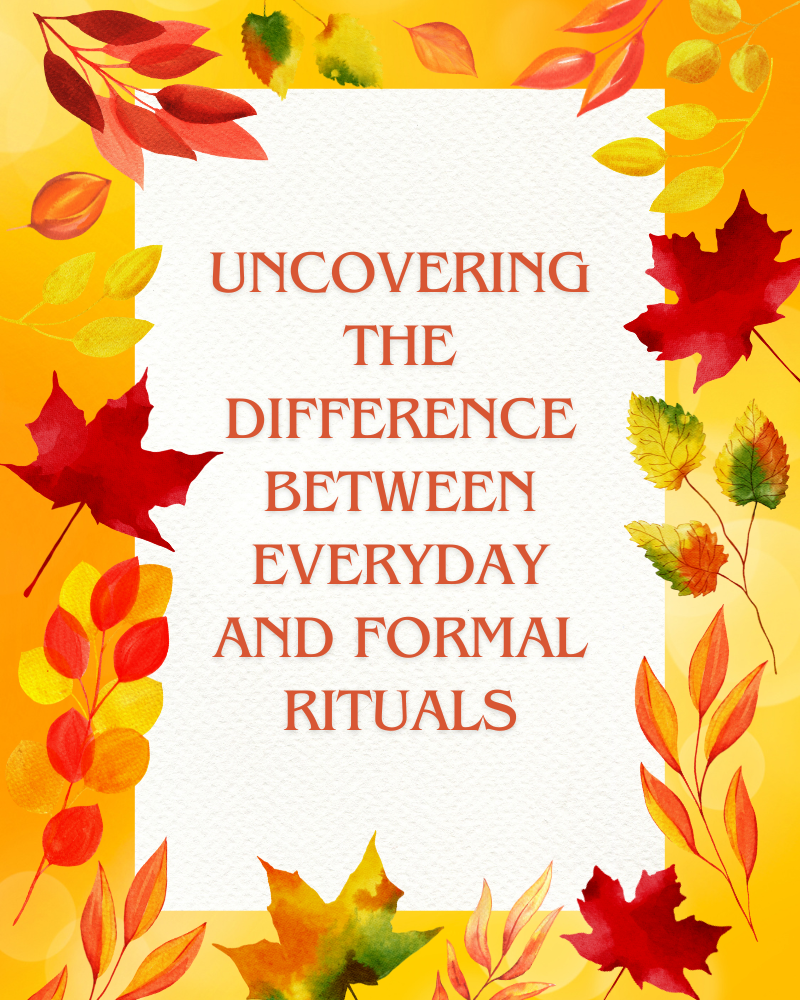Are you looking for a way to make positive changes in your life, but aren’t sure where to start? Everyday rituals can be the answer. In this blog post, we’ll explore what everyday rituals are and how they differ from bigger, formal rituals.

Daily rituals are distinct from those more formal rituals that happen less frequently. The more formal ones include events such as weddings, graduations or funerals. A major distinction between the two kinds of rituals is their intent.
The less frequent rituals are more likely to foster social connections or mark the passing of time. They may also create a sense of predictability, which can help reduce stress and anxiety but that’s not their main purpose.
Everyday rituals are just the opposite. While they sometimes have other purposes, the primary aim is to establish predictability, create routines and habits, empower their participants, and/or reduce stress and anxiety. Many everyday rituals are multipurpose and accomplish several of these goals at once. They make life more manageable and enjoyable.
Bigger rituals tend to involve more people, they might even be scripted (eg. wedding service) and more formal. They may involve certain ways of dressing and they usually take longer to perform eg. graduation ceremonies.
Daily rituals again, are the opposite. They are smaller and involve only one person or a few people at most. They tend to be simple and informal. Because they are performed so often, they must be quicker.
Larger rituals tend to be more general and made to attract a wide audience. We can customise and tailor everyday rituals to a single person.
The everyday rituals we perform can be so commonplace that we don’t even recognise them as such. Whether it’s something we do every day, several times a week, or multiple times a day, these habits have become second nature to us. But if we take a step back and look at them objectively, it’s clear that they are in fact – rituals.
Creating rituals gives us the sense of predictability that our brains crave. We like knowing what’s coming up and what we need to do now, tomorrow, and the next day. Our minds don’t handle changes or surprises well, so having a system of rituals helps us stay on track and gives us that feeling of being in control.
Of course, not all habits and routines are good for us. We all have bad habits we need to kick and get into routines that don’t serve us well from time to time. Luckily, we can change these. Establishing new everyday rituals is the best way to do that.
Over the next week or two we’ll take a look at some examples of everyday rituals and figure out how we can create our own.
